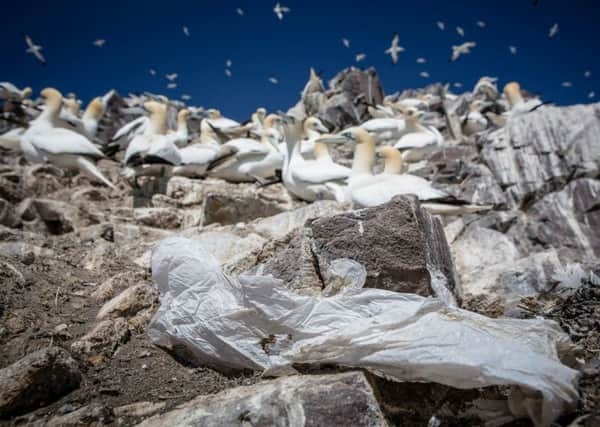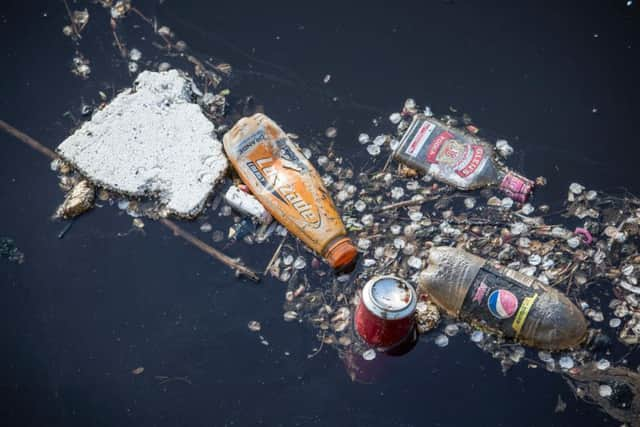Warning over high levels of plastic in Firth of Forth


Greenpeace says studies show that 90% of seabirds have ingested plastic, and have released a number of images of plastic around eggs in nests and strewn across the Bass Rock, and even in the beaks of seabirds.
The findings come on the first day of research during the Beluga II’s scientific voyage around Scotland, which runs until the end of June, documenting the impact of plastic pollution on some of the UK’s most precious wildlife like puffins, gannets and basking sharks.
Advertisement
Hide AdAdvertisement
Hide AdThis week scientists aboard the Beluga II conducted sea surface sampling for microplastics around the Bass Rock, finding suspected plastics in the water which will undergo further analysis on board and at Greenpeace’s Research Laboratories at Exeter University. The Beluga II’s crew then accessed the Bass Rock, accompanied by experts from the Scottish Seabird Centre, and investigated nests and surrounding areas for plastic.


Willie Mackenzie, oceans expert at Greenpeace, said: “Being surrounded by tens of thousands of gannets on the Bass Rock is a stunning spectacle – but it’s seabirds like these which are acutely threatened by ocean plastic pollution.”
“We found plastic bags, packaging, bits of old fishing gear and even crisp packets strewn across the island and surrounding eggs in nests. It’s no wonder that studies have shown that 90% of seabirds have eaten plastic.”
“A truckload of plastic enters the ocean every minute and 16 million plastic bottles end up in our environment every day in the UK. We need urgent action from major soft drinks companies, like Coca-Cola which produces over 100 billion throwaway plastic bottles every year, to reduce their plastic footprint, and we need governments to deliver initiatives like bottle deposit return schemes which can reduce the amount of plastic ending up on our beaches and in the sea.”